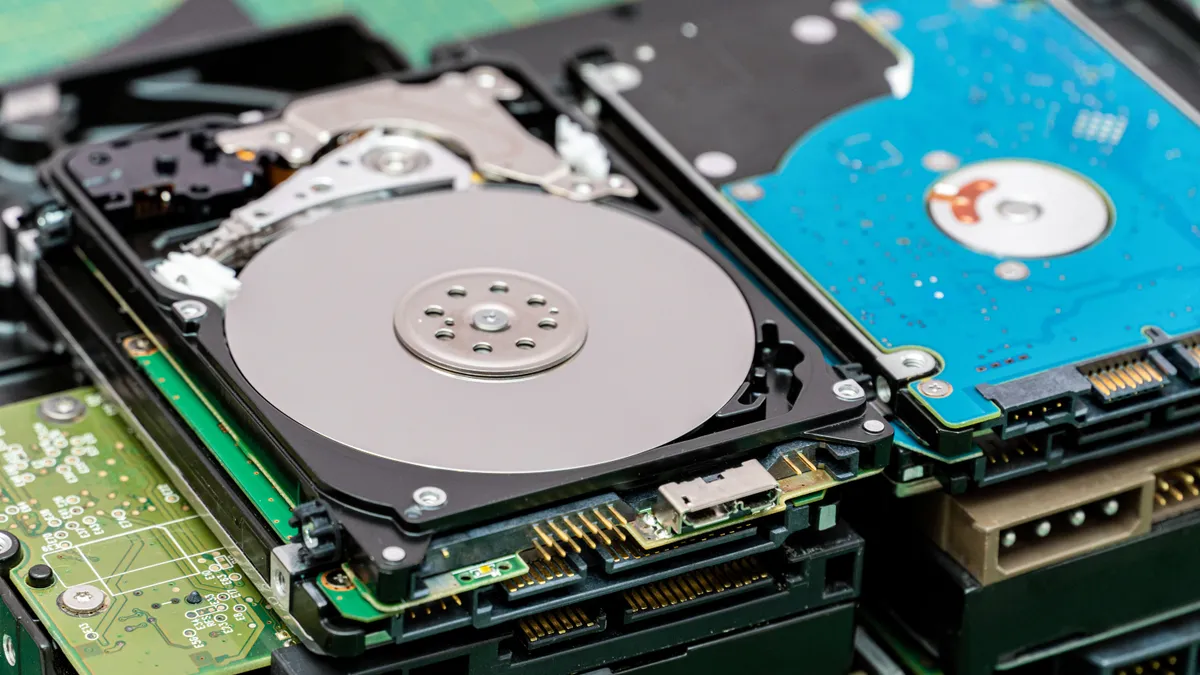Cyclic Materials, a metals recycling company for rare earth and other critical metals, has received an equity investment from Microsoft’s Climate Innovation Fund to continue its work on technology for recovering rare earth metals from end-of-life hard drives.
Cyclic has been working on the technology, dubbed CC360, for about two years. CC360 helps IT asset disposal companies separate a portion of the hard drive — mainly the magnets — for rare earth recovery, while sending the rest of the hard drives through traditional ITAD processes. Cyclic then processes the magnets.
The technology could also “prove invaluable to large data center operators such as Microsoft as they work towards their circularity and sustainability goals,” said Cyclic co-founder and CEO Ahmad Ghahreman, in a news release.
This process is different from how ITAD companies currently process hard drives. The drive usually goes through a data destruction process, then gets shredded in order to recover metals such as gold and silver. The rare earth metals are not usually recovered, Cyclic said.
Cyclic says it has been validating the new technology through tests with ITAD companies such as Sims Lifecycle Services.
Sean Magann, chief commercial officer at SLS, said in a statement that testing the CC360 has led to “tremendous performance improvements” that have reduced the number of magnets that clog shredders and helped them achieve a throughput of one drive per second. The technology “enables us to drive further value out of disposed hard drives, by reclaiming the critical rare earths, while maintaining the data security of the hard drives being disposed,” he said.
The investment also aligns with Microsoft’s zero waste goals across direct operations, including products and packaging, by 2030, said Brandon Middaugh, senior director of the climate innovation fund. “As demand for rare earth elements continues to grow in importance, we’re excited to support the creation of a sustainable supply of these materials with this investment,” he said in the announcement.
In recent years, U.S. companies have seen more private and federal investments in electronics recycling efforts that recover critical materials. Strengthening domestic supply chains for the minerals has become a federal economic and manufacturing priority because other countries currently corner the market on certain minerals commonly used in electronics.
The Microsoft funding will help accelerate the timeline for building out Cyclic’s commercial facilities, which Ghahreman said is “a critical step in growing the domestic supply of rare earths in North America that support the energy transition.”
Microsoft’s Climate Innovation Fund has also backed other recycling efforts. In 2021, Rheaply, an online platform for diverting usable items from disposal, announced a $2.2 million inter-series funding round led by the climate fund and MIT Solve. Rheaply used the funding to boost its platform’s ability to measure carbon emission reductions when customers use their service.
In 2023, AMP Robotics also received backing from the climate fund as part of its series C round used to scale operations and introduce new models of its sortation technology.










